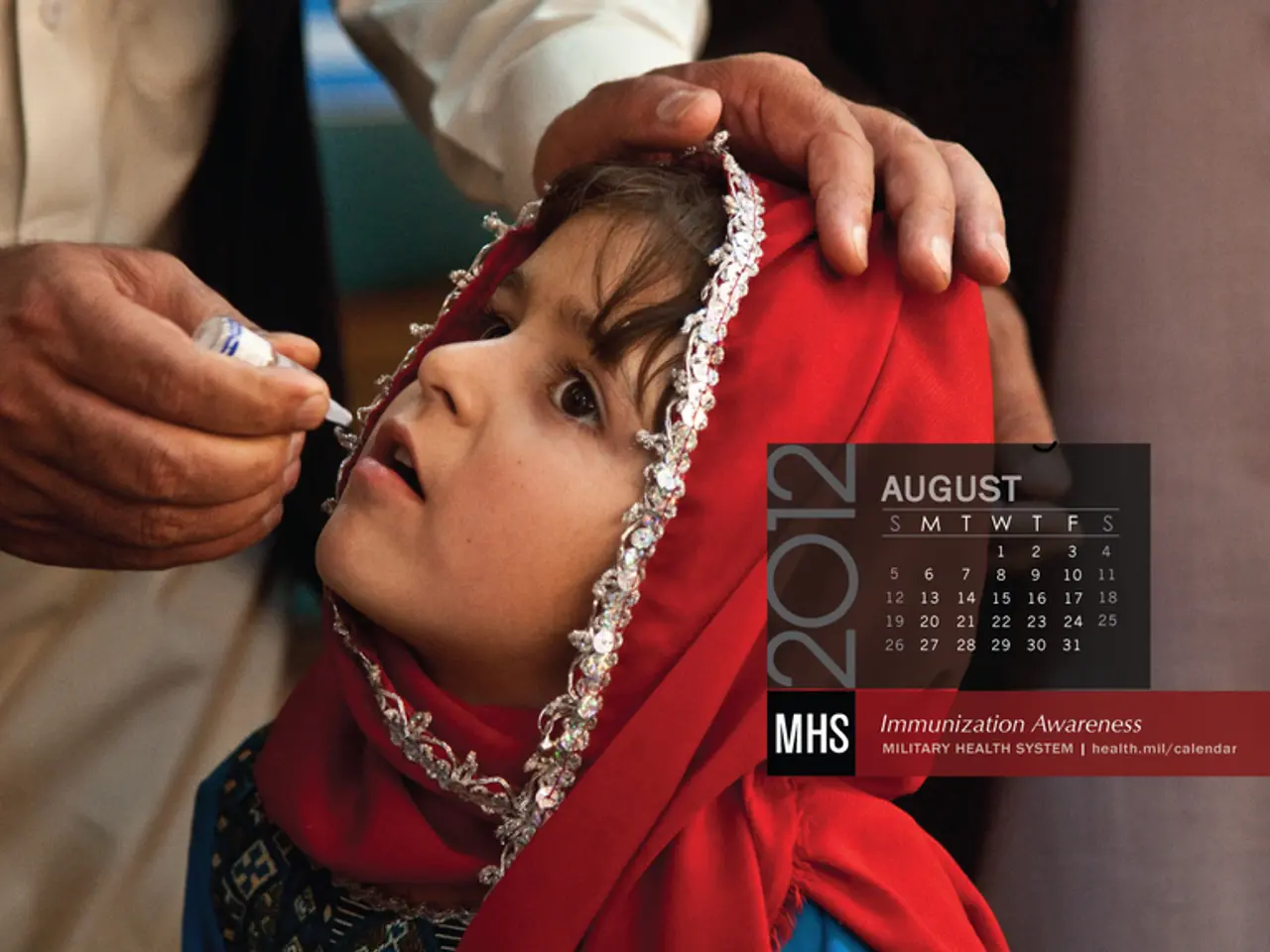Pregnancy-Related Fifth Disease: Causes, Symptoms, Potential Complications, and Treatment Options
Pregnant women should be aware of fifth disease, a viral infection caused by parvovirus B19, which can pose risks to both the mother and the unborn child.
If a pregnant woman suspects she has fifth disease, it's crucial to seek immediate medical attention. The disease is spread through bodily fluids, coughing, or sneezing, and if a mother has a weakened immune system, she may have a higher risk of contracting it during pregnancy.
Fifth disease during pregnancy can lead to complications such as miscarriage, anaemia in the unborn child, and non-immune hydrops fetalis, a severe fetal condition involving fluid accumulation. The risk of these complications is highest before 20 weeks of pregnancy, with a 13% risk of miscarriage before this point, and decreases significantly after 20 weeks.
Non-immune hydrops fetalis is a severe condition that can cause fluid accumulation, including ascites, skin edema, pleural and pericardial effusions, and placental edema. This condition is caused by severe fetal anemia due to parvovirus infecting red blood cell precursors. The risk of non-immune hydrops fetalis varies by timing: less than 5% in the first trimester, about 10% between 13 and 20 weeks, and less than 1% after 20 weeks.
Severe fetal anemia leading to heart failure can occur, which can be life-threatening to the fetus. In rare cases, hydrops can cause heart failure or death.
Treatment options and management for fifth disease during pregnancy are primarily supportive, with close monitoring of the pregnancy. Pregnant women with known or suspected parvovirus B19 infection should undergo ultrasound monitoring for signs of fetal anemia and hydrops fetalis. If fetal anemia or hydrops is detected, intrauterine fetal blood transfusion may be considered to manage severe anemia and improve fetal outcomes.
Immunocompromised patients or those with persistent infection may require specialized management, but this is less common in pregnancy. Preventive measures include avoiding exposure, particularly for pregnant women with young children or those in contact with infected individuals, although avoidance can be challenging.
Anaemia is a risk for the unborn child if the mother has fifth disease. The unborn child can develop anaemia due to the destruction of red blood cell precursors by the parvovirus. If a blood test during pregnancy reveals the presence of parvovirus B19, further tests like cordocentesis or amniocentesis may be suggested to determine the severity of anaemia in the unborn child.
Recovering from fifth disease gives immunity to the parvovirus B19 infection. The disease is characterised by a 'slapped cheek' rash, sore throat, fever, headache, and joint pain. A person will usually develop the fifth disease between 4 to 14 days after getting infected by the virus.
In summary, fifth disease during pregnancy is mainly concerning for early pregnancy complications related to fetal anemia and hydrops, necessitating careful prenatal monitoring and possible intervention in severe cases. Pregnant women should be aware of the risks associated with fifth disease and seek immediate medical attention if they suspect they have been infected.
Read also:
- Home-Based Methods and Natural Remedies for Managing Atherosclerosis
- Exploring the Natural Path: My Transition into Skincare with Cannabis Ingredients
- Pregnancy-related Hepatitis B: Potential Hazards and Remedies
- Temporary halt in the relocation of Palestinian families to Donegal due to worries about healthcare availability






